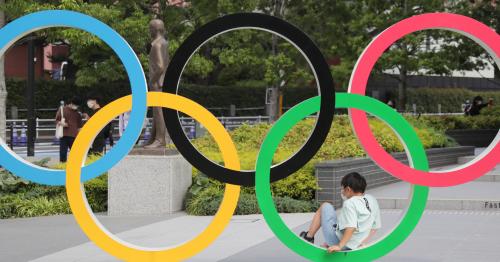This article originally appeared on the The Hill. Read the full article here: Why the World Anti-doping Agency should revisit its cannabis ban | TheHill
Sha’Carri Richardson’s suspension from the USA Olympic Team has set off a firestorm of controversy that combines international sporting, drug policy and racial justice.
Richardson admitted to smoking marijuana to cope with the death of her biological mother. Troublingly, Richardson was informed about the death of her mother by a reporter just days before the biggest race of her life. And while the suspension decision may comport with the World Anti-Doping Agency’s (WADA) rules, it does not mean the policy is righteous or reflective of scientific understanding of cannabis. This may be why the White House is seeking to meet with WADA.
In the wake of Richardson’s suspension, WADA has an opportunity to do what countries around the world and states across the U.S. are doing: reexamine the basis for the laws and rules regarding cannabis and chart a path forward that is more informed than punitive. Three dozen U.S. states have passed medical cannabis laws since the mid-1990s, while Canada, Uruguay, 18 U.S. states and the District of Columbia have legalized cannabis. Major sporting agencies including the NBA, NFL, and MLB have made significant changes to how they penalize cannabis.
These policy changes reflect a better understanding of cannabis’s relative harms, particularly when compared to the sensationalized propaganda that the government and media have peddled. These reforms also recognized that cannabis laws were crafted on a fallacious set of arguments that advance racial prejudices and criminalization. Not only was the foundation of cannabis laws racist in nature, but the enforcement of those laws, even today, embody systemic racial bias. According to the ACLU, Black Americans are nearly four times more likely than white Americans to be arrested for a cannabis-related offense, despite usage rates between Blacks and whites being essentially the same.
A supermajority of Americans has had enough with drug prohibition and appreciate a reevaluation of laws and policies. However, the reason a state or country may change its laws can differ from the reasons a sporting organization may consider banning a substance. WADA should convene a group of experts who conduct scientific research on cannabis as well as those who study its effects in clinical settings. Some of this research will reflect the positive qualities cannabis provides. The panel also should consider other physiological impacts of cannabis on an athlete, including how the same depressive qualities that may assist one’s anxiety may hinder training or performance. The effects of cannabis and THC, the main psychoactive compound in cannabis, should be compared to the effects of alcohol, cigarettes, and cannabidiol/CBD, which WADA has recently removed as a banned substance. This panel should also consider the manner in which THC testing occurs and what the test is seeking to identify. Specifically, research on active THC versus metabolites should inform WADA’s decision on how to test athletes and how to potentially penalize them.
Finally, WADA must consider the history and optics of anti-cannabis policies. WADA says that cannabis does not embody the “spirit of the sport” and is inconsistent with how athletes should behave as role models. This is a problematic aspect, particularly since cannabis did not become a banned substance until 1998. Considering the late 1990s were the height of mass incarceration that disproportionately incarcerated Black people for marijuana, the controversy surrounding Richardson’s positive test and suspension should be a moment to reconsider that broader policy.
Richardson looks very much the part of those most criminalized by the war on cannabis in the United States: Black, young, and from an urban area. While Richardson will miss an opportunity to compete for gold in Tokyo, back in her home country, hundreds of thousands of Black and Latino Americans will miss out on their dreams for upward mobility as the racial targeting of drug laws give them a record and alter their future. This injustice is the source of anger and vitriol directed toward WADA, and the reality of that injustice must be part of any conversation surrounding drug testing procedures.
Richardson’s situation speaks to a cultural flaw in how far we have to go to grapple with culpability, coping, criminality, empathy and respectability politics. While she has been criticized by some about her nails, hair, and eyelashes, to others, Richardson is a “shero.” As she so aptly noted on The Today Show, “Don’t judge me because I am human. I’m you, I just happen to run a little faster.” Maybe the type of empathy, humanity and maturity that a 21-year-old who recently lost her mother is able to convey should be adapted to revisit cannabis policy in sports and in our society.








Commentary
Why the World Anti-doping Agency should revisit its cannabis ban
August 4, 2021